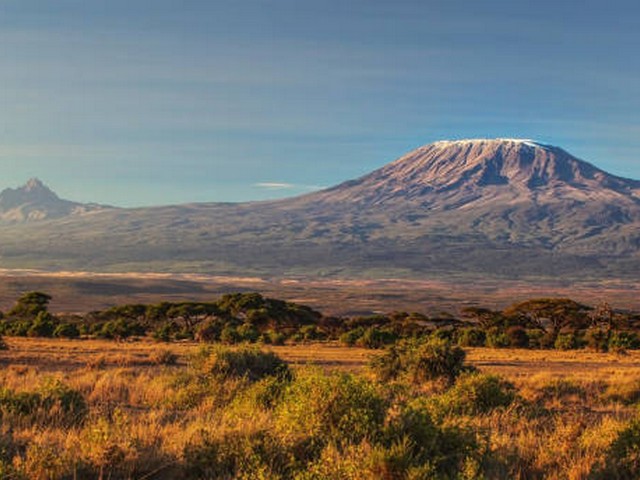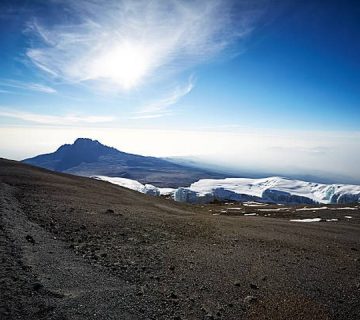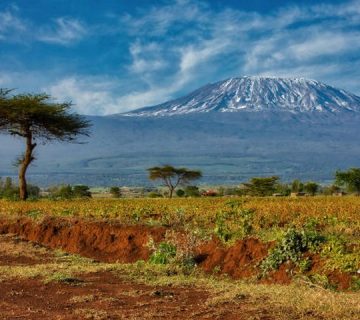Rongai Route Kilimanjaro vs. Marangu Route: Choosing Your Path to the Summit
Introduction: Journey to the Roof of Africa
Mount Kilimanjaro, the highest peak in Africa, offers more than just a climb; it presents a journey, a test of spirit and endurance, and a profound connection with nature. At Kilimanjaro Centre for Trekking and Ecotourism (KCTE), we understand that choosing the right path isn’t just about reaching the summit—it’s about personal challenges, unforgettable experiences, and memories that last a lifetime. Today, we explore two popular routes to conquer this majestic mountain: the tranquil Rongai Route and the historic Marangu Route. Each trail offers unique landscapes and challenges, making the choice a crucial part of your adventure.
The Rongai Route: Serenity and Wilderness
A Tranquil Ascent
The Rongai Route, originating from the northeastern side of Kilimanjaro, is celebrated for its tranquil and unspoiled environment. This route offers climbers a more gradual ascent, making it a perfect choice for those who prefer a less crowded path. The gentleness of the climb does not reduce its beauty—the Rongai Route passes through lush rainforests, home to exotic wildlife, before transitioning into alpine meadows and, eventually, the arctic zone near the summit.
Why Choose Rongai?
- Seclusion: It is the least crowded route to Kilimanjaro, providing a peaceful and contemplative climb.
- High Success Rate: The gradual slope allows for better acclimatization, leading to higher success rates.
- Scenic Diversity: From the cave formations to the majestic Mawenzi Tarn, the route is a visual feast.
The Marangu Route: A Trail of History and Hospitality
The “Coca-Cola” Route
Often referred to as the “Coca-Cola” route, the Marangu Route is the oldest and most established path on Kilimanjaro. Starting from the southeastern side of the mountain, this route is unique because it offers hut accommodations, unlike the tented camps on other routes. These huts provide a communal and cozy atmosphere, making it a popular choice for those who prefer a more “civilized” approach to mountain trekking.
Why Choose Marangu?
- Comfort: Huts with sleeping bunks, equipped with mattresses and pillows, are available throughout the route.
- Rich History: Being the oldest route, it is well-defined and has been trodden by famous personalities over the decades.
- Ease of Access: The direct trail makes it a preferred choice for climbers seeking a straightforward route.
Comparing Rongai and Marangu: Terrain, Difficulty, and Experience
Terrain and Scenic Beauty
While both routes promise the iconic Kilimanjaro experience, they differ significantly in terms of terrain. The Rongai Route offers a wilder and more natural environment, making it ideal for those who wish to immerse themselves in nature. In contrast, the Marangu Route provides a sense of historical journey, its well-trodden paths steeped in the tales of those who walked before.
Climbing Difficulty
In terms of difficulty, the Marangu Route, although seemingly straightforward, often has a lower success rate due to poorer acclimatization opportunities, given its shorter itinerary. The Rongai Route, with its longer and gentler ascent, typically boasts higher success rates, especially for climbers who take their time to savor the journey.
Climber Experience
Choosing between Rongai and Marangu often comes down to personal preferences in the climbing experience. Do you seek a quiet communion with nature, or are you enthralled by the camaraderie that comes with a more populated route? Your answer to these questions will guide your choice.
FAQs: Common Queries About Rongai and Marangu Routes
Q1: Which route has better acclimatization profiles?
A1: The Rongai Route has a better acclimatization profile due to its longer and gentler ascent.
Q2: Can I encounter wildlife on these routes?
A2: Wildlife encounters are more likely on the Rongai Route due to its remote and less crowded path.
Q3: Which route is more suitable for beginners?
A3: Both routes can be suitable for beginners, but the Marangu Route’s hut accommodations might be more appealing for those unsure about camping.
Q4: How long does it take to climb Kilimanjaro via these routes?
A4: The Rongai Route typically takes 6-7 days, while the Marangu Route can be completed in 5-6 days.
Q5: What are the main differences in cost between these two routes?
A5: The Rongai Route tends to be slightly more expensive due to its remote starting point and lower traffic, whereas the Marangu Route is a bit more economical with its hut accommodations.
Conclusion: Your Summit Awaits
Choosing between the Rongai Route and the Marangu Route on Kilimanjaro is a decision that shapes your entire climbing experience. Whether you prefer the peaceful ascent and natural beauty of the Rongai Route or the historical charm and relative comfort of the Marangu Route, each path offers its own unique set of rewards and challenges.
At the Kilimanjaro Centre for Trekking and Ecotourism (KCTE), we are dedicated to making your Kilimanjaro adventure unforgettable. With expert guides, comprehensive support, and a deep commitment to ecotourism, we ensure your journey is not just about reaching the peak—it’s about embracing every moment of your climb.
Ready to embark on your Kilimanjaro adventure? Choose your route and book your climb with KCTE today! Let us help you achieve your dreams and create stories you will tell for a lifetime. The majestic summit of Kilimanjaro awaits your footsteps. Where will your journey begin?




